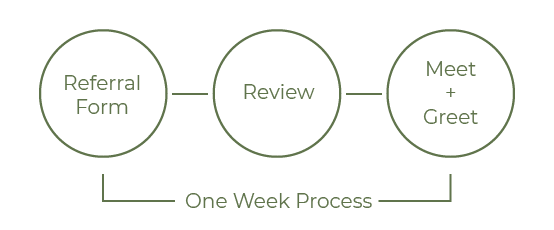Support Workers
Registered NDIS Support Workers
NDIS Mental Health Support Workers Gold Coast and South Brisbane
Offering the highest level of care and support for NDIS participants
What Does a Mental Health Support Worker do?
If you’re an NDIS participant you may wish to receive help from a support worker.
You can gain access to this service through your NDIS plan.
Each support worker is clinically supervised by a clinical team which includes,
Dino Urzi – Clinical Psychologist and Amanda Beckinsale – Clinical Supervisor.
The supervisory process is imperative to ensure that all workers are operating at their optimum in order to provide clients with the services they deserve. This is another defining feature which sets Urzi Psychology apart from the rest of the services in South East Queensland.
Offering highly skilled, friendly psychosocial support workers, hand-selected to empower our participants to achieve their goals. You can rest assured that each participant is receiving the highest level of care and support.
The focus of the psychosocial support is recovery-oriented and person-focused and sees support workers applying evidence based practices and personalised approaches tailored to address the specific support requirements of the participants and agencies.
What can I expect from a support worker?
Support workers provide assistance with day-to-day living. They can help with household tasks such as cooking and cleaning, grocery shopping, attending appointments, using technology, and anything else that may be difficult for you to do on your own.
By building capacity with these everyday tasks, they aim to develop all of the skills and confidence you need to achieve your goals independently.
A good support worker is more than just a helper, they’re someone you can rely on, a person to talk openly and honestly with, and someone who’s there for you on your wellness journey. They treat you with respect at all times, and let you make your own decisions so you can live the life you want.
How do I get a support worker?
If you live on the Gold Coast or South Brisbane, Urzi Psychology can provide support worker services that are tailored to you.
We help you cope and function more effectively in your everyday life by offering support services based on your unique values, characteristics, and circumstances.
Urzi are first and foremost mental health specialists, and we treat every client with the care, compassion, and kindness they deserve. We offer farming, cooking, art, beauty, and music programs that promote mindfulness and positive mental health.
If you’re interested in how Urzi can help you, simply complete the short Intake and Assessment Form form below and we’ll be in touch to get the ball rolling.
Meet Some of Our Gold Coast NDIS Mental Health Support Workers
Hannah
Say hi to Hannah.
Hannah is an Urzi Psychology support worker that loves to stay active. Her personable nature never fails to put a smile on client’s faces.
Angel
Angel is an Urzi Psychology support worker who’s all about empowerment.
She takes the time to get to know others and equip them with the tools they need to achieve their goals. Clients love her supportive can-do attitude.
Nancy
Nancy understands that compassion is key when it comes to NDIS support.
She’s a dog-loving creative who connects with clients through arts and crafts, music, and bush walking. She’s always down for a chat.
Rajeena
Rajeena is an adventurous Urzi Psychology support worker who encourages positivity through fishing, swimming, art therapy, and bush walking.
Her openness, curiosity, adaptability allow her to connect with all clients of all needs.
Michael
Michael is a passionate, family-loving Urzi mainstay.
Over the years he’s empowered people of all needs through meaningful conversations and his friendly, unhurried approach to life.
Jordan
Jordan is a big fan of building connections through hobbies.
Whether it’s exercise, board games, or music, he’s always eager for something fun and engaging.
Aaron
Those who’ve met Aaron know that he’s a great listener.
He specialises in men’s issues, and understands well the needs and wants of younger clients.
Robyn
Robyn loves to help clients improve their lives through personal development.
An avid pilates and meditation practitioner, she’s patient, open-minded, and kind.
Riann
Riann’s positivity is contagious.
Her life and work experience with customers has developed her ability to understand people in the world of health care and mental health disability.
Lachie
Lachie comes from a strong background of youth work.
He likes to spend a lot his time being a positive role model for young people.
Jordan
Jordan primarily works with youth.
He enjoys helping them overcome challenges on their way to adulthood.
Gabby
Gabby works predominantly as a counselor, but also in a support work capacity.
This often entails helping clients with practical living tasks as well as enjoying and engaging in recreational activities.
Sophie
Sophie is a relatable support worker that is open and honest about her own mental health journey.
NDIS Funding supports these mental health conditions
The National Disability Insurance Scheme (NDIS) in Australia provides funding and support for participants with disabilities, including those with mental health conditions.
The NDIS takes a functional approach to eligibility, focusing on how a person’s disability affects their ability to engage in everyday activities.
To be eligible for NDIS funding, participants with mental health disabilities must demonstrate a significant functional impairment related to their condition. This impairment must be likely to be permanent or likely to be permanent with early intervention support. The NDIS does not provide funding for mental health conditions that are temporary or episodic in nature, such as short-term anxiety or depression.
Common mental health disabilities that may be eligible for NDIS funding
These include, but are not limited to:
- Psychotic disorders, such as schizophrenia.
- Mood disorders, such as major depressive disorder and bipolar disorder.
- Anxiety disorders, including generalized anxiety disorder, social anxiety disorder, and obsessive-compulsive disorder (OCD).
- Post-Traumatic Stress Disorder (PTSD).
- Personality disorders, such as borderline personality disorder.
- Intellectual disability with co-occurring mental health conditions.
- Dual diagnosis of intellectual disability and mental health condition.
It’s important to note that the NDIS considers the impact of the disability on a person’s functional capacity, rather than diagnosing specific mental health conditions.
Each individual’s circumstances are assessed case by case, considering their unique needs, goals, and functional impairments.
If you or someone you know is seeking NDIS support for a mental health disability, it is advisable to contact the National Disability Insurance Agency (NDIA), which is responsible for administering the NDIS. They can provide further information and guide you through the eligibility criteria and application process.
If you’re seeking help from a support worker under your provided NDIS funding and you have already received a psychometric assessment and diagnosis, then please use the intake form below to request our assistance.
NDIS Participant and Support Coordinator
Intake Assessment Form
If you are a NDIS Participant or NDIS Support Coordinator please complete the form below
to provide our team with the necessary information we require for assessing your intake.
Once we have received all of your details we will review and respond to organise a meet and greet.


